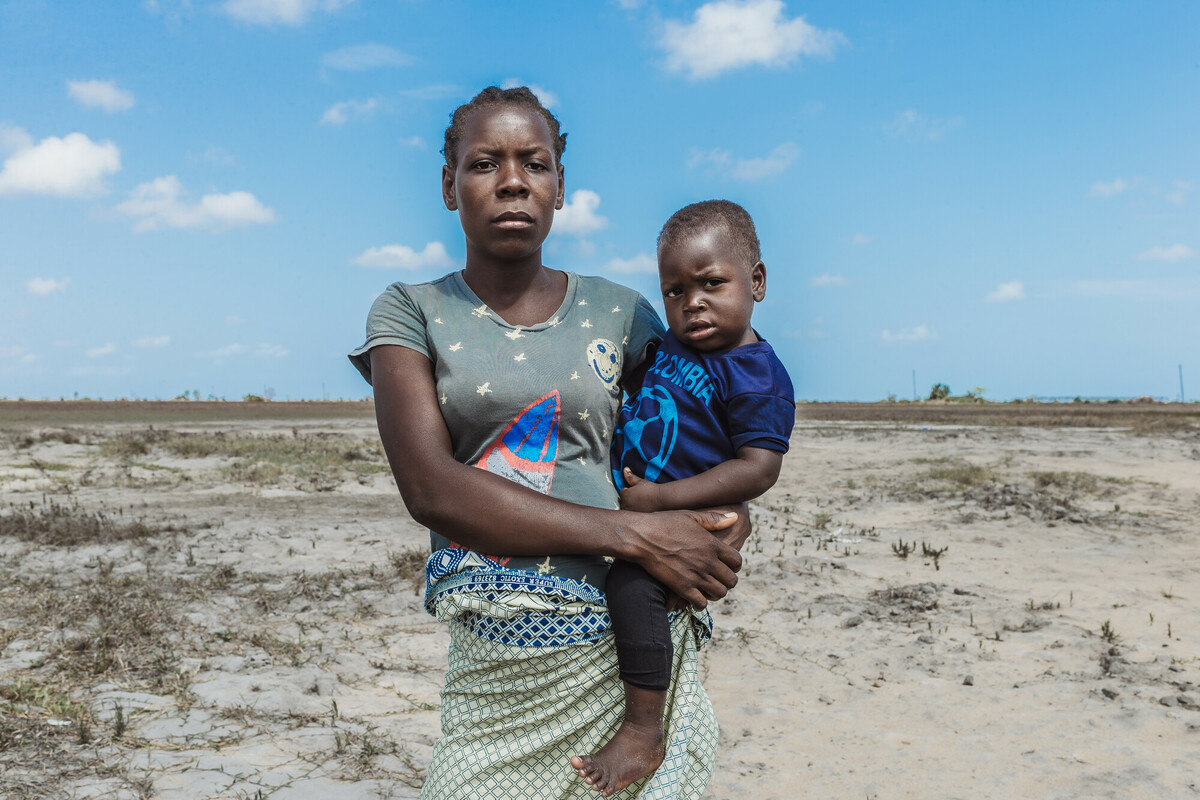Poor women are most impacted by climate change.
Before Cyclone Idai hit the port city of Beira, Mozambique, Fátima João had a house to live in with her husband and four children. She had just bought the children notebooks, backpacks, and pencils for school. But the storm destroyed everything.

Of the estimated 26 million people who have been displaced by climate change, 20 million are women. And of the 1.5 billion people who live on $1 a day or less, a majority are women. Black and brown women who are poor and live in low- and middle-income countries bear the heaviest burden from climate change—primarily because of the continuing effects of colonialism, racism and inequality.
For a while just after Idai struck, to feed her family, Neide Manuel resorted to searching for coal to sell. Now her small business selling food is what sustains them.
I eat a little, store a little…now I can’t be so picky. I will keep on fighting. For the sake of my children, and for me too. I’m always fighting.
When Cyclone Idai hit Mozambique in March 2019 as one of the most powerful tropical cyclones to ever make landfall in Africa, it left Neide, her husband and her six children without a home. They live in the port city of Beira where the impacts of climate change are being felt more with every passing year—and every cyclone season.

What will mom do now?
Mothers are never off duty—especially during and after a disaster. Around the world, they are almost always the primary caregivers responsible for finding food and water for their children and securing a safe place to sleep. In the aftermath of a climate-related disaster, mothers shoulder the responsibility and stress of ensuring their family survives—often without much help. With great resilience, mothers lead the slow, painful process of trying to rebuild the normal routines and sustenance of daily life.

I constantly have to be placing basins to prevent the room from filling up with water when it rains a little.
Laura Joaquim Amandio lost the roof to her house in Beira during Cyclone Idai and has struggled to provide for her two children since. She hopes to delay having more children so she can focus on finding work—and maybe even go to school so she can find more stable income.
Soumika Mondol, age 22 and pregnant with her first child, lives with her husband and in-laws in the coastal village of Koyra in Bangladesh. During Cyclone Amphan in May 2020, the family lost their house.

Women and men both used to work, but now we can’t grow anything.
The region where Soumika lives has suffered many severe cyclones in recent years, increasing the salinity of the water and making it unsafe for humans and inhospitable to crops. “In the past we grew rice, but since the cyclones, nothing is growing in our land,” Soumika says.
The COVID-19 pandemic has only made a hard situation worse. “Now we do not have work,” Soumika says. “We do not have money.”
“I wish to have educational facilities and health-care facilities; then I would no longer think about my child. With this support, at least we could live life and continue,” says Trishna Bala Mondal.
Listen to Trishna's lullaby
Trishna Bala Mondal is 26 and lives with her in-laws, husband, and young son in the coastal village of Shamnagar in Bangladesh. She faced two cyclones during her pregnancy, and her son was born just a week after Cyclone Amphan ravaged the area in May 2020. She struggled to care for her new baby while her family dealt with a severe shortage of drinking water and total loss of income due to the storm.



